“This era has probably been the most collaborative that we have ever been”: Sam Rasmussen on The Paper Kites and the Somerset House Summer Series
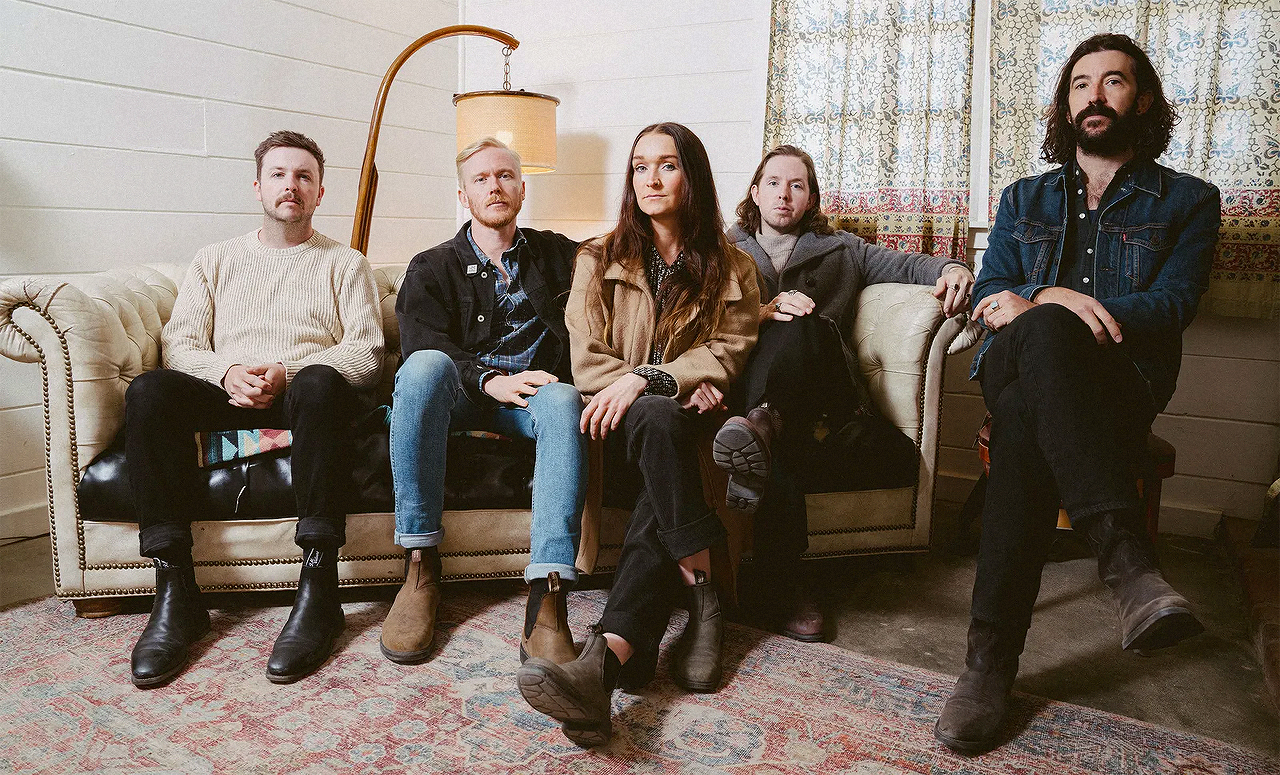
London is a cultural hub, offering a wealth of entertainment throughout the summer, from West End Live to a variety of concerts and festivals dedicated to film and art. One upcoming event is Somerset House’s Summer Series, featuring a wonderful curation of musical acts from around the world and various genres of music, from homegrown talent like Jacob Banks to American artists like Joy Oladokun. One particular band taking over the stage on one of the nights is the Australian group, The Paper Kites. Initially gaining traction with their indie folk sound, particularly their single Bloom, The Paper Kites have been working together for almost 15 years.
With six albums and another record on the way, the band of five is cohesive in their collaboration. According to bass player Sam Rasmussen, all their songs begin with lead vocalist Sam Bentley and his songwriting prowess. But everyone within The Paper Kites has something unique and important to offer. Over the years, their sound has changed from that familiar focus on acoustic guitars to something more pop and Americana. The Upcoming caught up with Rasmussen in the lead up to their performance on the 18th of July to discuss curating set lists, the long history of the band, all the memories he gained and lessons he learned on his almost 15-year journey with The Paper Kites.
Has making music for a living always been your plan? Was it always something you wanted to do growing up, and what influenced you to be part of a band and make music?
It is basically what I always wanted. I started playing the bass guitar when I was in Year Six of school; I was 11 years old. All through high school, I had all sorts of various plans and ideas. Basically, what I wanted to do was play music. I always dreamed of being able to make a career from playing music and travelling the world, being creative, and that kind of thing. It has been a long and hard road. I’ve played in lots of bands, and even with The Paper Kites, we’ve been together for 14 – nearly 15 – years. It’s many years of hard work and lots of travel, and it has turned into something. It really is a dream come true.
Speaking of the band, The Paper Kites, if you were to entice a newcomer into what kind of music to expect from this group, how would you describe it to them?
Well, we certainly started as an indie folk band. In the very early years, it was all acoustic instruments. But over the years, it has developed, and we’ve added a lot more elements, and it has gotten a little bit louder. I guess now, the music would be described more as indie folk-inspired guitar pop. Our last record, which we released a couple of years ago, had a bit more Americana influence as well. It’s a sound I sometimes struggle to describe. But I think that’s probably the best [way to put it]: indie folk-inspired guitar pop.
Tell us about your history with the band. How did you first get involved with them, and how did you first meet the other members and first perform as a band?
It started around 2010. At that stage, most of us were friends. It started with Sam Bentley and Christina Lacy; they were good friends, and they used to play and sing together. It was just the two of them, and they’d play at a local café for a few dollars, a free dinner or something – just for fun. We were all pretty young; we were all in our early 20s at that stage. Then they had a couple of weddings, I’m pretty sure, where friends asked them to play and put together a full band. They called me, Josh Bentley and David Powys, up.
There was a local music festival where other bands were playing. We thought, “Hey, it’d be fun to see if we can get a set with this band as well.” That’s when we gave it a name; we just plucked “The Paper Kites” out of thin air and went, “Yep, that sounds like a band!” We got the spot at the festival, and that went well. It went rolling from there; it was very natural and organic. There was never a strategic moment where we all agreed to set up a band that’s going to be successful; it happened out of fun. In those days – 2010 and around then – we were all playing with other bands. It was all punk, ska and rock music – louder stuff. To be a folk band was pretty different. But we were all exploring those sounds because it was fun and we enjoyed it. It naturally progressed from there and gained traction.
Speaking of exploring different sounds, you started off with this indie folk sound, and then moved forward with more pop sounds. I know that for artists, there can be resistance from fans when they expand or tread new waters. Was that a familiar sensation you went through as a band, or was everybody on board with what you were creating?
We’ve certainly worked through some different sounds over the years. I guess, as a band, we’ve always wanted to not keep ourselves in a box because it’s popular or it’s accepted. We wanted the band to be an expression of the kind of music that we want to play. But I think, for most people, over the course of 15 years, their musical preferences shift and change a little bit. We want to stay true to the core of what we do, but over the years, we’ve shifted and changed from a very folk acoustic, and then some bigger sounds, into more 80s influences, and then some more Americana.
We have such wonderful fans who have been open-minded and have given us the opportunity to explore different spaces. I’m sure there are people out there who, when we release a new record, they’ll probably switch it on and be like, “Oh, I like their old stuff, this isn’t for me.” That’s fine; I’m fine with that. But for the most part, we’ve seen with each new era, new people jumping onboard, and the faithful fans embracing the music.
Internally, because Sam does most of the songwriting, he gets a good say on what direction we’re moving in. Over the years, we’ve wrestled with song decisions and that kind of thing internally. About what’s going to work, maybe what’s too much of a jump away from what we know is the core of our identity. But, looking back now, it’s a journey that we’re proud of. I think, in the big picture, it makes sense. You hear a new song and think, “Oh, that’s different!” But then, over the years, it makes sense, and it just becomes The Paper Kites.
You talk of Sam Bentley as the main songwriter. What’s the process of making a record like for you as a group? Do you bounce off each other topics you want to cover in an album, the kind of stories you want to share, and he strings them into words? Or is it all just personal to him? How does that collaboration work within the band in terms of the message you want to present as an artist?
Lyrically and thematically, it almost always starts with Sam. Historically, we’ve never really messed with that. Lyrically, whatever comes out has genuinely been through him. The way that we work, especially on this – we’ve been working on a record for the last couple of months – the way that it has worked is: he writes the core of the song and then he shares it with us, and we all go over it. He writes lots of songs; we may need ten per album, he might write 20 or 30 songs. We just go through them and discuss which ones we think could turn into something, or something that may be suitable for another time, or whatever.
Some songs he had a very clear arrangement that he was keen on, and we liked i,t so we went with it. Other songs, we really built it together as a group and arranged it. Some songs, Sam arranged, and we pulled them apart, rearranged them, added bits in and took bits out. This era has probably been the most collaborative that we have ever been. Like I said, we’ve just finished working on our next record, and we were in the studio for six weeks. Which is probably the longest that we’ve ever taken, and it’s because we were just taking our time working through songs and collaboratively pulling them apart again and rewriting them.
That’s the process. The core of it comes from Sam. We each have different strengths in what we bring to the arrangement table. Some are stronger at just arranging the backing vocals and the way that the harmonies and the vocals work, and others are more focused on the sonic atmosphere of the song. We found a good groove. In the early years, it caused some conflict, or some things were a bit harder than they should’ve been, because we were all trying to contribute in our own way, not really understanding what our strengths were. But these days, we lean on each other a lot. If someone speaks up and says, “I think this is the best idea,” we’ll all say, “Okay, we trust that.” That’s how, traditionally, we worked with writing songs.
Speaking of album seven, is there anything you can tell us about it, whether it’s thematically or the inspirations and sounds people should expect coming from it?
I would say that, at least to me, it feels like a logical next step from Roadhouse, our last record. It draws a lot on what I would call more traditional The Paper Kites feelings. There’s folk influence there, but then there’s also elements of Roadhouse; there’s pedal steel and some Americana influences as well. It feels like a logical next step – like we’re drawing from what we just did, but also drawing from the early years. We’ve recorded all of that and, over the next month or so, we’re going backwards and forwards working with a mix engineer over in America, just getting it altered. We’ve done our bit, but now we need to get all the sound right, get balanced, and make sure it’s presented in the best way that we can present.
You’ll be performing this summer in London at the Somerset House for the Summer Series. Are you looking forward to that?
We’ve been really, really excited about the Somerset House show. We weren’t planning on coming to the UK or Europe this year at all. But we had a string of festival dates in Canada through the summer, and we knew that we wanted to spend a bit of time in New York at the very end of the mixing process for our record, to just be there in person and get that finished off. Then the opportunity to play at Somerset House popped up, and instantly we saw that it would look like an amazing show. The timing felt too good to be true: it was right after we were in New York, so it’s just a short moment or short flight. Coming from Australia, anything that isn’t 16 hours feels like a short flight to us. It kind of made a whole lot of sense if we just go straight across and played this show. It was just too good to say “No”.
Have you decided on the set list for the show, and will it be similar or different from the set you’ve decided for your upcoming tour?
We have been working on the set list, and it will be very different. We’ve written for this upcoming tour, and we have two tours, so there’s another one in September. We’re doing a mix of festivals, some supports, and some headliners. We wrote our festival set, our support set and our headliner set. But then we wrote a Somerset House set because we want it to be really special and really different. We think it’s a really special venue and stage.
I’m unsure how much I’m allowed to talk about, but I can say that we have a number of guests lined up. We have friends who are very successful artists in their own right in London and surrounding areas. We’ve been talking with a few guests who are going to come out and sing some songs. [They’ll] sing some of our songs, we’re going to play someone else’s song – they’re going to get up and help us. We have some amazing artists who are going to be joining us. We’re just trying a few different things because we played a headliner in London last year, and we’ll be back the year after, most likely. We thought, “Let’s do something different. Let’s play some older songs we don’t normally play, let’s get some guests, let’s switch things up a bit.”
It’s nerve-wracking for us because it means we have to do more work and more practice; we can’t just rely on autopilot. But it’s going to be really special. Like I said, we’ve got exciting things planned, and I just can’t wait to get there and see the place. None of us has been there, but we’ve looked at many photos, videos, and all sorts of things. It looks like an amazing area and an amazing building.
Some other great acts are performing in the Summer Series as well. We have Freya Ridings, St Vincent and Flo. Are there any of them that you would love to see if you had the time to?
I know Joy Oladokun is playing on one of the other nights. I think that she’s fantastic and I would’ve loved to have seen her. We’re only around for the night; we have to go straight on to another show. St Vincent is playing on one of the nights – that’ll be amazing. I’m told that the Summer Series do take really good care of curating the acts. I’m sure any given show will be amazing.
As far as performing live goes, do you have any core memories of your moments on stage with the band or even with the fans that really stick out to you, even until now?
Many, many amazing memories. It sometimes turns into a bit of a blur because we don’t keep count of how many shows we have played. It’d have to be more than 500 or something.
I’m not just saying this because we’re talking about London, but our show last year at the O2 Forum in Kentish Town was one of the all-time great shows from our perspective. Like I said, we play a lot, so they can blur together a little bit. But that was just a really, really special show. It was one of the bigger crowds that we’ve played to as a headliner. There was an incredible energy in that room, and it’s an amazing theatre as well. When we reflect back on the older shows that we did for the Roadhouse tour, that was one of the true highlights for us. We were just absolutely buzzing after that.
We have also played some incredible shows in Amsterdam as well, with all the music lovers there. A few years ago, we did a number of pretty incredible festivals throughout Canada. We were lucky enough to get a few main stage slots, which is always incredible. Playing on a main stage in a festival with that many people – you never get sick of that.
And London, so rich and vibrant with culture, and so much history surrounding it. Why do you think this is the perfect place for indie bands like The Paper Kites to share their music?
Well, you’re right. There’s so much in London! You can name a genre, or even name a creative expression, and there are many options. Anyone who lives in London is just so fortunate. There are countless, countless amounts of acts that got their start living in London and working out from there.
Whenever we’re in town, we always try and carve out an extra day or two on either side of the show. It’s tricky because our schedules are usually pretty tight. But, whenever we do get the time, we’re just finding what’s close, what kind of food we can try, what’s the best coffee, or – we all love a good English ale – where’s a nice pub we can get a good beer. That kind of thing. There’s just so much happening; it’s just endless.
A lot of big American cities have a lot of exciting things. But London has such a deep culture, and the last time I was there, I was staring at the Tower Bridge. I read somewhere that it was built – I’m not going to get this exactly right – but it was about 200 years ago. I realised this bridge was built around the same time that Australia was colonised. Australia is quite a young country in that regard, and it has a very long and beautiful indigenous history. But I just thought of how the country I live in has only been colonised for 200 years, and this bridge was built around the same time. This shows how much older, and how deeply embedded in history, a city like London is. It’s always a thrill to be there and to experience that.
You and the rest of the band have been at this for almost 15 years now. How has the journey been, how has it changed you as people, and do you think everything you’ve learned and experienced these past 15 years bleeds into the evolution of your music as well?
Absolutely, yeah. We’ve learnt a lot.
For our second record, which was released ten years ago, we attempted to make the record-making process into a documentary. We had everything filmed, but we never ended up releasing it – for a couple of reasons. Mainly because it just felt like it wasn’t actually that interesting, but that’s a different story. We were looking back at that footage recently, just in the last couple of months, and looking at ourselves and thinking we were so green and so young. It was our second record, we’ve been doing it for a few years, we’re going to America, and we really felt at the time we were so mature, experienced, and road-worn. Like, we really knew what we were doing. But looking back now, we were giving it a good crack, but we really were just figuring it all out.
We’re lucky to have been doing it for so long. Now, I guess, there’s a confidence in making a record, putting together a show, or performing a show. It’s a confidence in the group that we’ve experienced a lot of different things, we’ve done a lot of things many times now, and it shapes what we do. The ambitious nature of when we put together a show, or we put together a tour, where we decide to make a record at this kind of timeline and engage with these kinds of people to help us, we have confidence simply because we’ve done it so much.
It’s a real privilege because – I know many, many musicians, and many of them far more skilful at their craft than I – not everyone gets opportunities like we’ve been blessed with. With those opportunities comes experience, and with that experience comes the you can grow and do more. We feel very fortunate to have been doing it for so long, and to be able to do it in a way that we do it.
In terms of growing as a person, what has being in this band taught you? What have you learned living, breathing and creating music with the rest of The Paper Kites?
If I could boil it down, I would say you need to keep it about the music. But then also, you need to take great care of the people you’re making that music with. I’ve seen many bands implode because, maybe it was all about the music but they created this trail of carnage behind them in relationships and the people they are working with. Marketing is important, strategy is important, and all those things are important and have to be considered. But, at the end of the day, it needs to be about the music, and you need to take great care and respect the people that you do it with. If you can walk that line, if you keep it respectful and keep the ego out and just be kind, I think that’s how it should work.
Mae Trumata
Photos: Courtesy of Paper Kites
For further information and future events, visit The Paper Kites’s website here.
Watch the video for Bloom here:


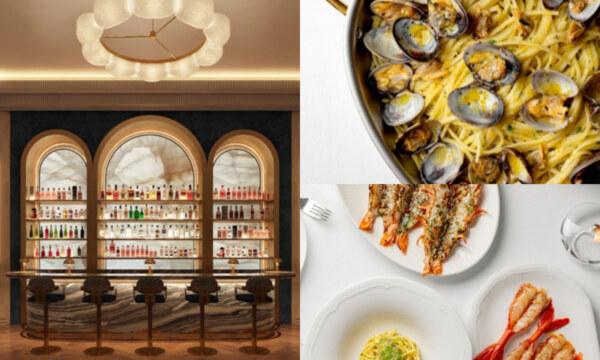
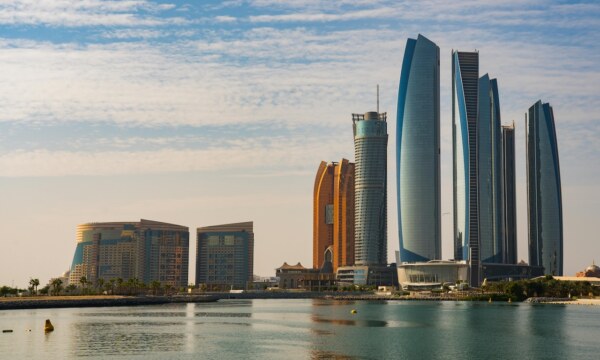
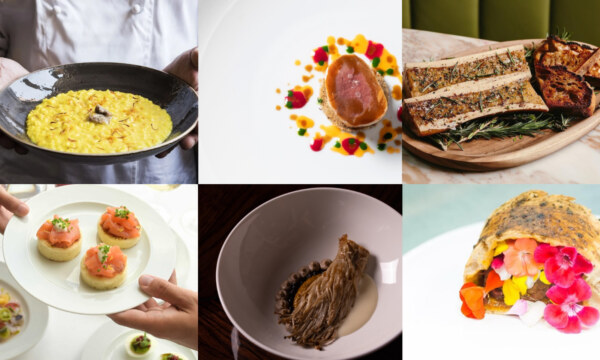
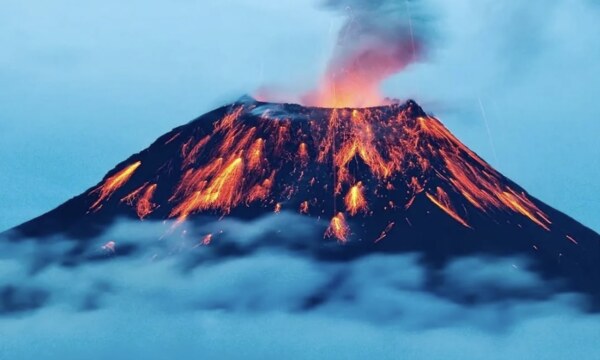
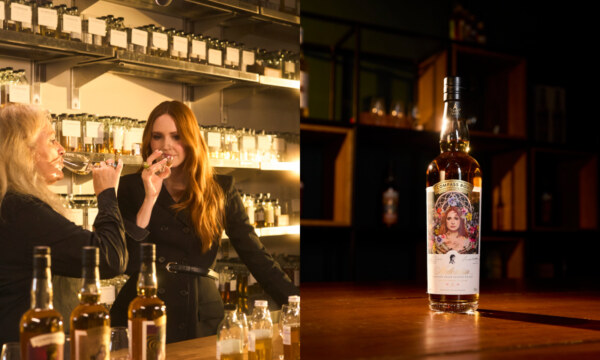
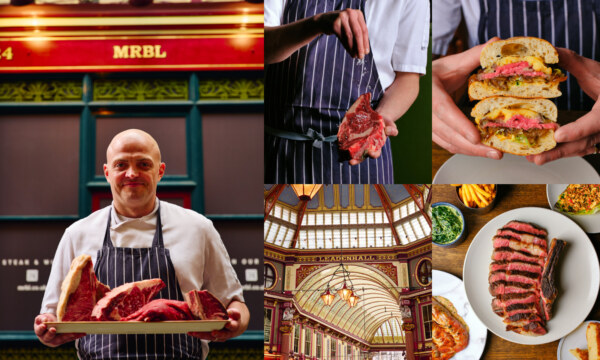
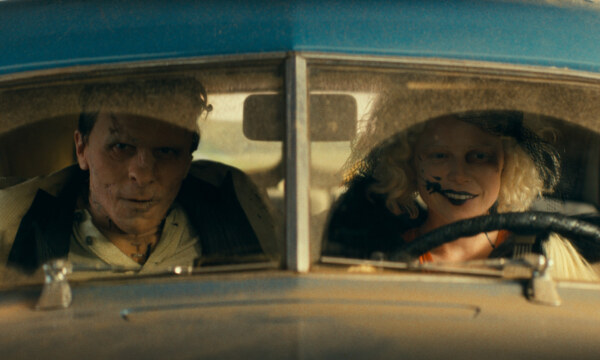
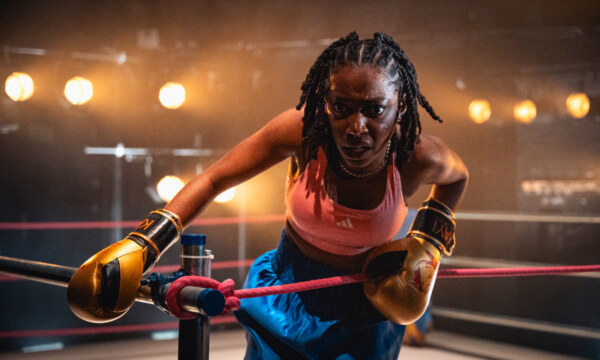
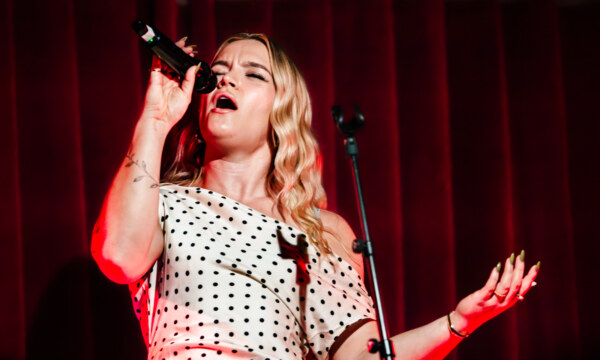
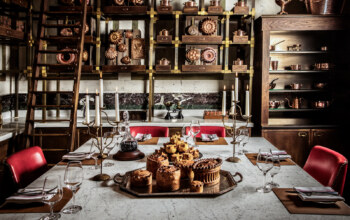
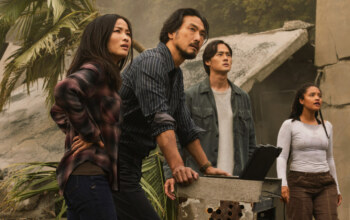
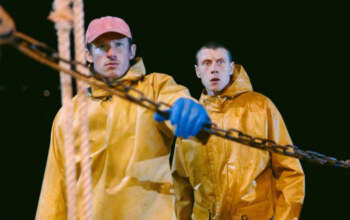
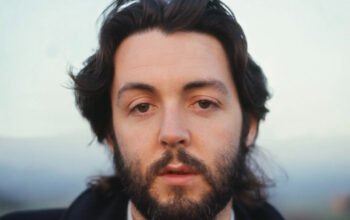
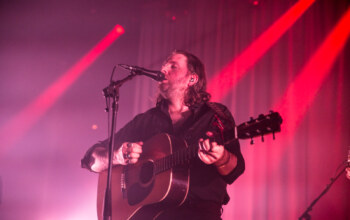
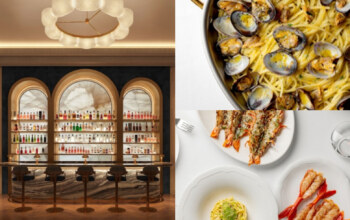

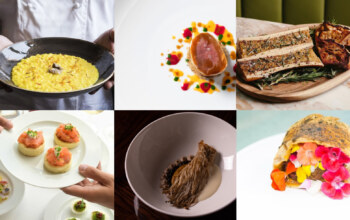

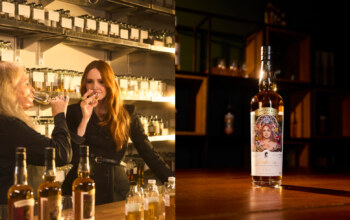
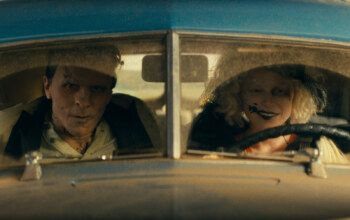
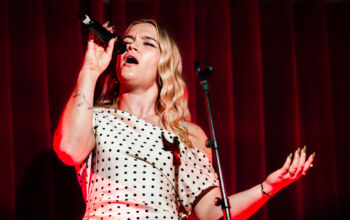
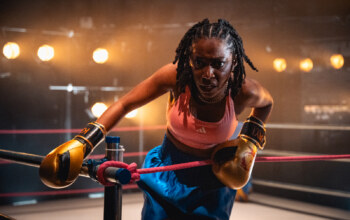


Facebook
Twitter
Instagram
YouTube
RSS